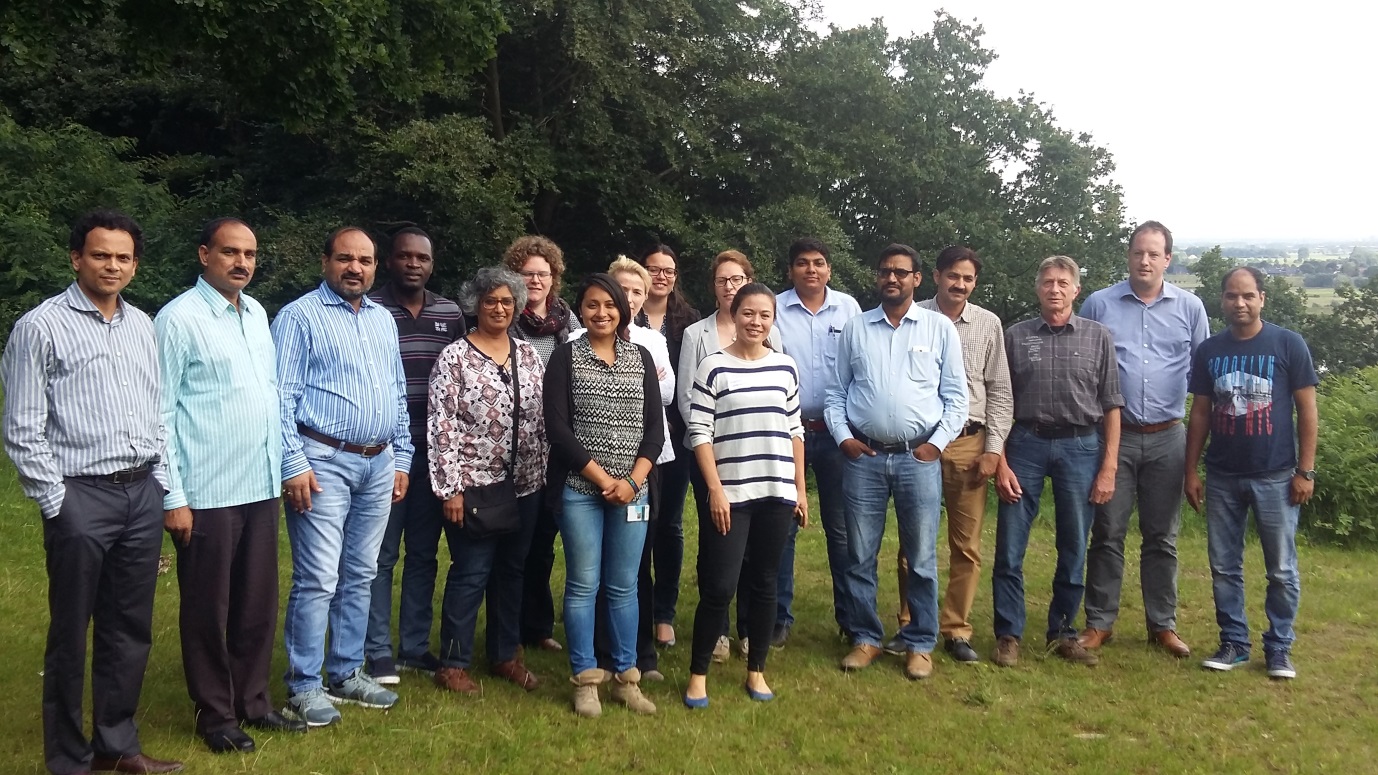WAGENINGEN, Netherlands — Agriculture is not considered a profit making venture by the farming community. Emerging challenges of climate change hinder growth and make it necessary to disseminate and promote the adoption of technological advances among farmers. Today it is vital not only to increase productivity but also ensure resource sustainability. Hence persuading farmers to adopt climate-smart agriculture (CSA) practices is critical for sustainably producing higher returns.
Under the aegis of the CGIAR research program on Climate Change, Agriculture and Food Security (CCAFS), CIMMYT and Wageningen University (WUR), The Netherlands, undertook activities to develop and scale innovative CSA business models at climate-smart village (CSV) sites in South Asia. To consolidate the work done and plan future activities, a workshop titled “Climate Smart Agriculture: Business modeling and innovation platforms for scaling” was held at WUR on 4 July 2016. Twenty-five participants from CIMMYT, India’s NARS (ICAR, SAU), WUR, KIT and private organizations attended the session.
Setting the objectives and context of the workshop, M.L. Jat, CIMMYT, and Annemarie Groot, Alterra, welcomed the participants. During a brainstorming session on climate smart agriculture as a business model and on how to use innovative platforms to promote it, participants expressed their views and improved their understanding of the issues. Building on the input of participants, Jaclyn Rooker (WUR) provided an introduction to business models and value systems, using the case of the Happy Seeder in Punjab, India, as an example.
The issue of commercialization in agriculture was discussed by participants. The scope and opportunities for developing a business model and addressing challenges to business model innovations were discussed in detail. Local innovation platforms and the success of laser land leveling in India were presented by M.L. Jat, CIMMYT, South Asia, to illustrate how technology adoption can impact livelihoods. “Opportunities for new business models and local innovation platforms need to be further explored,” stated Jat.
Annemarie Groot presented an overview of innovation platforms for business development and scaling and the research undertaken on these subjects. The meeting concluded with a discussion on the challenges of future research on business modeling and innovation platforms for scaling CSA. By sharing work experiences and engaging in participatory planning, workshop participants succeeded in finding ways to change the mindset of farmers while providing necessary support and guidance.

 Capacity development
Capacity development